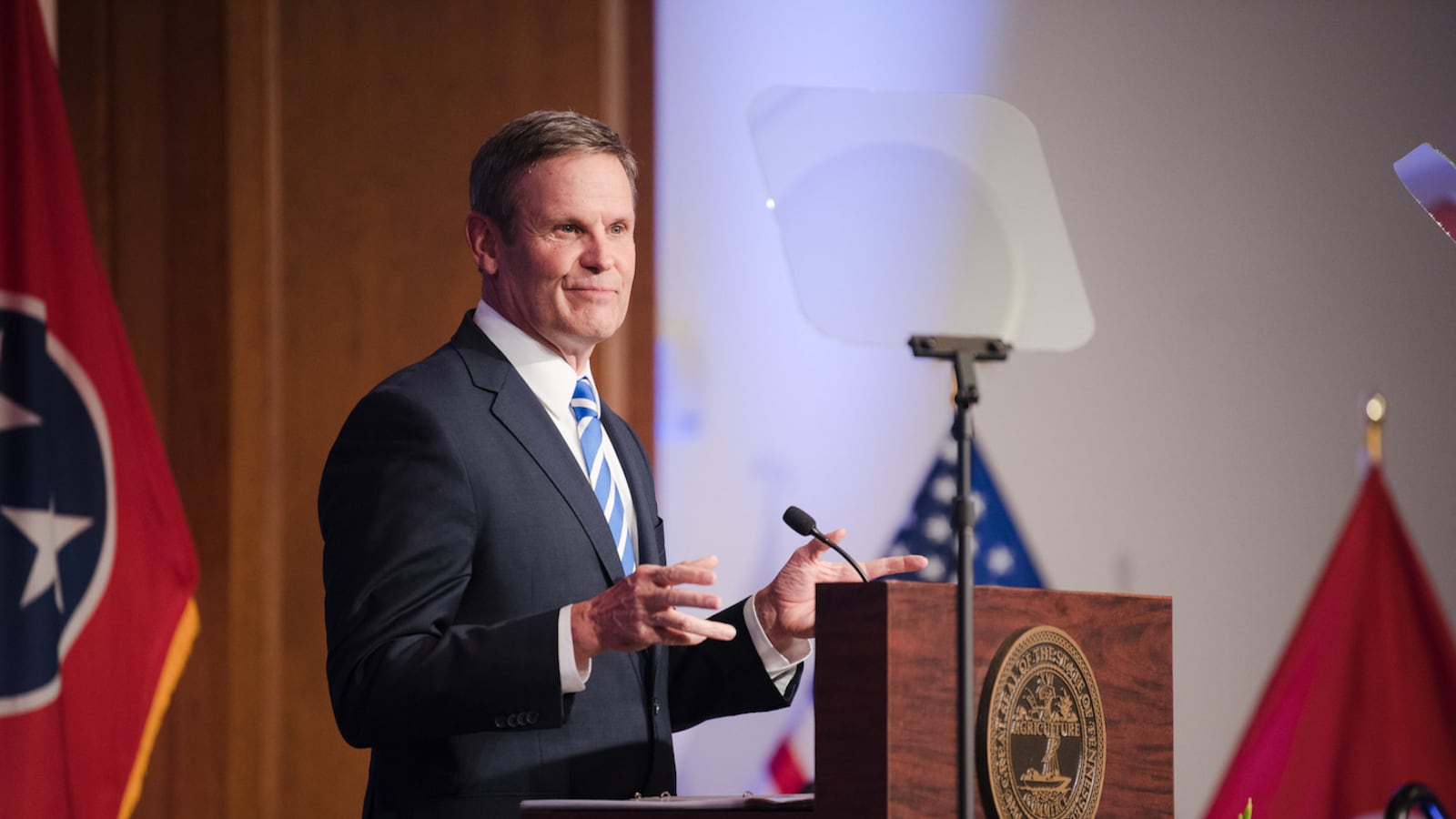Tennessee Gov. Bill Lee quietly signed his education savings account plan into law on Friday, setting the course to let some public school students in Memphis and Nashville use taxpayer money to pay toward private school tuition or other education services.
The new Republican governor signed the legislation despite more calls from Democrats asking him to hold off because of “unprecedented controversy” surrounding its passage this spring. And leaders of the legislature’s Democratic caucus, which has long opposed school vouchers, quickly blasted his decision to proceed.
“This is a bad day for Tennessee’s schools and the families that rely on them,” said Rep. Mike Stewart, who chairs the caucus.
Although the bill was Lee’s signature education initiative during his first year in office, the governor signed it with little fanfare at the state Capitol before participating in a Memorial Day ceremony in downtown Nashville. A ceremonial signing may come later, said Laine Arnold, the governor’s press secretary.
In a letter delivered to Lee on Friday, four lawmakers from the two cities affected cited a news report that FBI agents have begun interviewing lawmakers about whether any improper incentives were offered to pass the bill in the House of Representatives.
“We are asking that this bill not be signed into law until the FBI has completed its investigation,” said the letter from Reps. Joe Towns Jr., G.A. Hardaway, and Barbara Cooper of Memphis and Stewart of Nashville. “Many of us are not satisfied and distrust how the process concluded.”
Chalkbeat has not independently verified that an FBI investigation is underway, and Arnold said the governor’s office has not been contacted by the FBI or any law enforcement.
When asked about questions that continue to swirl around the bill’s passage, Arnold characterized them as “rumors” that should not stand in the way of giving parents more education choices for their children, especially in the two cities that are home to dozens of low-performing schools.
“Gov. Lee is a longtime advocate of school choice, and the education savings account bill is a key step in ensuring every student in Tennessee has access to a high-quality education,” Arnold said. “We are proud to see this bill become law and look forward to a future of educational opportunity.”
The bill passed by a comfortable margin in the Senate but barely squeaked by in the House, where Speaker Glen Casada held the vote open for 38 minutes to convince Republican Rep. Jason Zachary of Knoxville to flip his position and break a 49-49 tie.
“It does not give the public confidence that the vote was properly taken,” the lawmakers said in their letter to Lee.
Casada, who was criticized for his strong-armed tactics, announced earlier this week that he will resign as speaker over a scandal involving racist and lewd text messages and other questionable activities by his chief-of-staff, Cade Cothren, who has also resigned.
Under Lee’s plan, education savings accounts would be available beginning in 2021 to up to 5,000 students leaving public schools in Memphis and Nashville. By 2024, the program would be capped at 15,000 students but could be expanded by a future legislature. The change could cost the state at least $165 million during those years, although confusion about the potential fiscal impact reigned as lawmakers passed compromise legislation just before recessing for the year.
There are also looming questions about the constitutionality of the new law. Shelby County Schools and Metropolitan Nashville Public Schools are looking into the possibility of taking the state to court for being singled out in the plan, as is the Tennessee Immigrant & Refugee Rights Coalition over one provision that’s intended to exclude undocumented students from participating.
Those groups have begun to have discussions about legal strategies going forward.

